OUR BLOG
REPUBLIC DAY OF INDIA
BILATERAL RELATIONSHIPS
REPUBLIC OF SERBIA AND THE REPUBLIC OF INDIA
Mahatma Gandhi – My Life is My Message
Republic Day of India is celebrated to commemorate January 26, 1950, when the new Constitution came into force and the country officially became a republic. After gaining independence from the British colonial empire on August 15, 1947, it was necessary to implement the required amendments to the administrative system. Although the Constitution was passed on November 26, 1949,the act of its formal adoption a few months later finally completed the country’s transition.
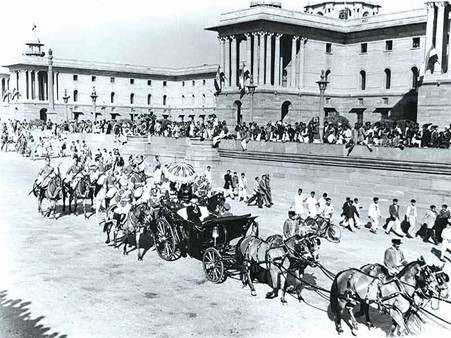
Rajendra Prasad, former president of India, heading for the parade, 1950
Republic Day is celebrated with highest honours, a military parade and in the presence of the President of India. The ceremonial parades are performed as homage to India and glorify its unity and diversity of rich cultural heritage.
Simbolically, each year the Indian government invites an honorary guest to attend the celebration. It is always the head of state or government of a country selected based on strategic, economic and political interests. The inaugural guest in 1950 was the President of Indonesia, Sukarno. In addition to the leaders of the ASEAN associations, India is investing efforts to strengthen its bilateral relations with other countries on this occasion. Thus, in 2015, US President Barack Obama appeared in this role, and in 2017, the Crown Prince of Abu Dhabi, Sheikh Mohammed bin Zayed Al Nahyan.
On the eve of Republic Day, the President of India presents Padma awards to deserving citizens.
Republic Day is one of the three national holidays in India. The other two include Independence Day (August 15) and the birthday of Mahatma Gandhi (October 2), the father of the nation and the man with immense contribution to India’s independence.
Role of Mahatma Gandhi in gaining independence
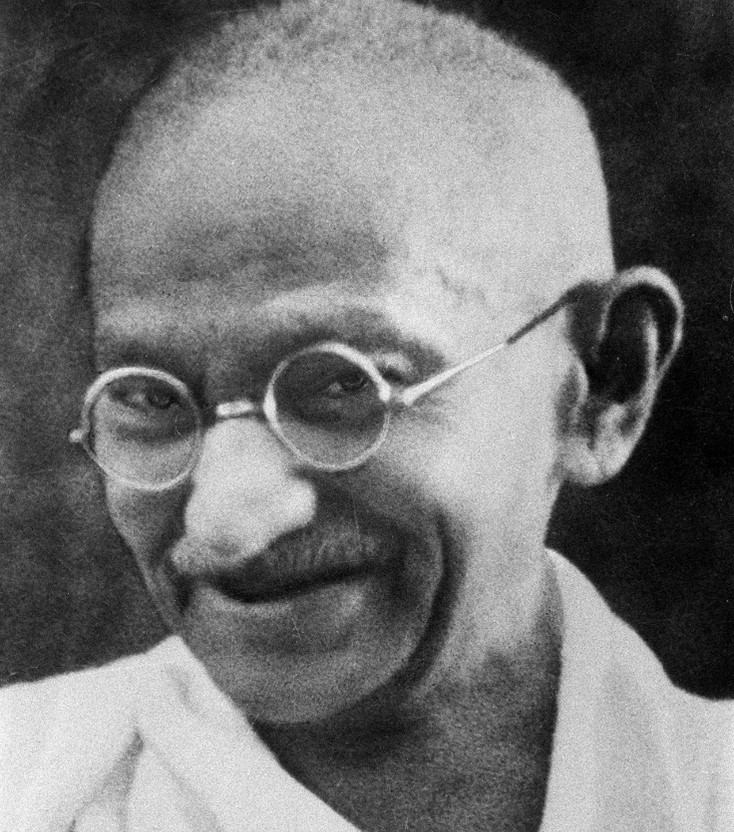
Mahatma Gandhi
Mohandas Karamchand Gandhi (1869-1948) was the spiritual and political leader of Indian independence from British rule under which India spent more than 250 years. Initiated by the struggle against colonial rule and poverty, and the desire to improve the position of women and oppressed castes, his ideology of nonviolence, truth, tolerance and social welfare served as an example for many figures who changed history, including Martin Luther King, Václav Havel, Rigoberta Menchu Tum and Nelson Mandela. His birthday, October 2, is observed globally as International Day of Non-Violence.
He was named Mahatma, meaning “great soul” in Sanscrit, by the most famous Indian writer, playwright and philosopher, Nobel laureate Rabindranath Tagore. Gandhi himself, following his life principles, did not particularly like to be called that way.
In his teaching, Gandhi rediscovered forgotten wisdoms and formulated them in such a way that they can be used and understood even today. It is based on three grounds: non-violent protests, persistence in truth, and individual and political self-determination.
Gandhi’s philosophy and his idea of satya (truth) and ahimsa (non-violence) were influenced by the Bhagavad Gita and Hindu beliefs and Jainism. Henry David Thoreau affected his philosophy in a different manner, with his ideas about civil disobedience and non-payment of taxes, as well as Leo Nikolayevich Tolstoy with his views on non-violent liberation and enlightenment.
He believed that true faith can unite members of different religions: “All I see is that life overcomes death, that truth overcomes untruth, and that light overcomes darkness. I realize that God is life, truth and light.”
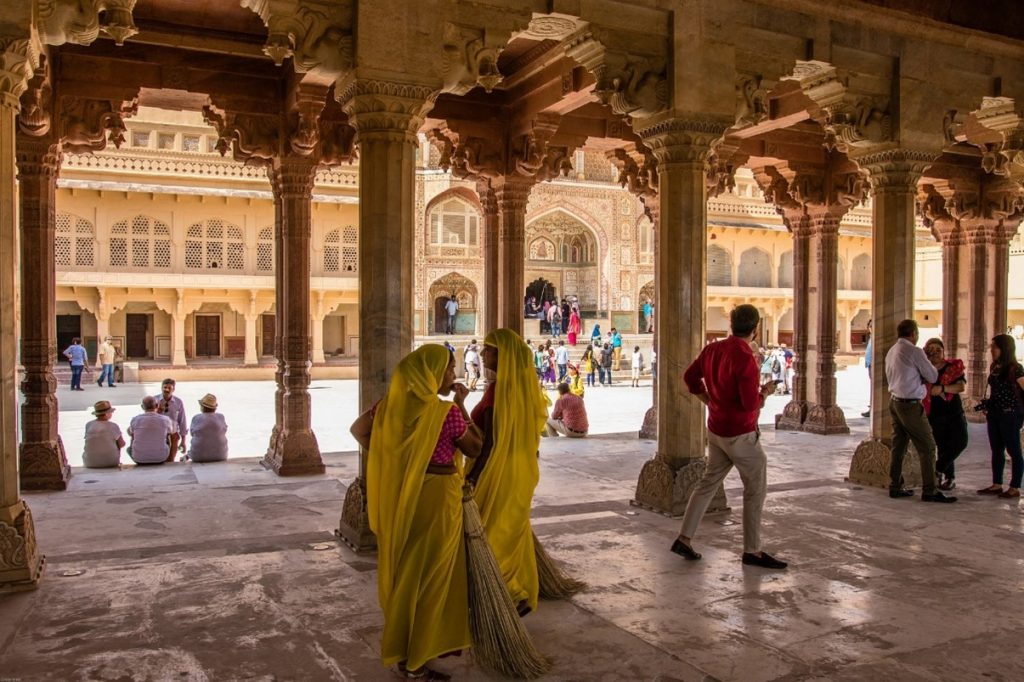
After arriving to India from South Africa in January 1915, where he had previously built his reputation as a leader of nonviolent resistance, he discarded his clothes signifying wealth and success and started wearing handmade clothes in order to be accepted and understood by even the poorest in India. His main goal was to prompt oppressed farmers and workers to oppose to ruthless taxation and discrimination. The boycott of British textile products and preference of local materials, the boycott of the colonial education and justice system, winning the support of colonial administration and persuading them to leave their bureaucratic appointments, refusal to pay taxes and duties – resulted in complete paralysis in the British colonial administration. He received the widest national support.
In 1921, the Indian National Congress gave Gandhi full executive power, including the right to appoint his successor. However, the Indian population did not fully follow Gandhi’s policy of non-violence, so there was a series of armed revolts against the British authorities, which made Gandhi admit that his policy had failed. In 1922, he was arrested and imprisoned by the British authorities. Gandhi himself withdrew his movement because of the victims in the “Chauri Chauri incident” and due to which Gandhi spent two years in prison.
During his imprisonment, the Indian independence movement further developed and diversified and new generation of political leaders such as Nehru, Patel and Bose matured meanwhile. Gandhi withdrew from active political life and devoted himself to promoting unity of the people. However, he later resumed his struggle for Indian independence. In 1930, Mahatma created a new wave of civil disobedience, urging Indians not to pay taxes. The resistance began with a march towards the sea in which thousands of Indians followed Gandhi to the place where they extracted salt from the sea. Gandhi was arrested again, but was released as early as 1931 after he agreed to stop the wave of disobedience when the British met his demands.
In 1931, Gandhi represented the Indian National Congress at a conference in London.
In 1932, Gandhi initiated a new wave of civil disobedience against the British. He was arrested twice when he resorted to a hunger strike, which proved to be a successful method of fighting the British.
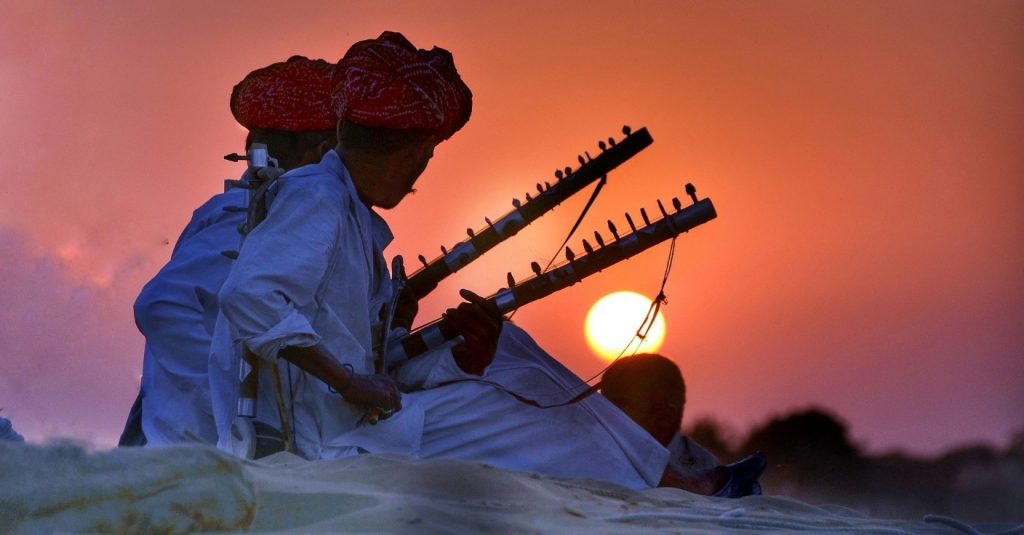
Gandhi believed that by peaceful resistance he could show the British that the use of violence was useless and that they would leave India afterwards. His political and spiritual influence on India became so important over time that the British authorities did not dare to take any countermeasures against him, fearing that the revolution might spread beyond India.
In 1934, Gandhi formally left politics, and was replaced by Jawaharlal Nehru as the leader of the Indian National Congress. Gandhi devoted himself to traveling around India, but in 1939 he returned to active political life because the foundations of the Indian federation were shaken. He led the people of India and became the most important political figure in the country.
After the outbreak of World War II, the Congress Party and Gandhi did not wish to get involved in the conflict until the British met their demand for Indian independence, and in 1942 the Indians entered the war supporting the British.
In 1944, the Indian struggle for independence reached its final phase. Gandhi strongly opposed to the division of India into two states (as demanded by the Muslim League), but in the end he still had to agree to this solution, hoping that peace between the two religious groups would be achieved. India and Pakistan became separate states when the British recognized their independence in 1947.
Mahatma Gandhi was assassinated in January 1948, less than a year after the declaration of the independence he fought for. His ideology of nonviolent resistance, peace and tolerance in the fight for social equality and the welfare of humanity remains an eternal inspiration for generations to come.
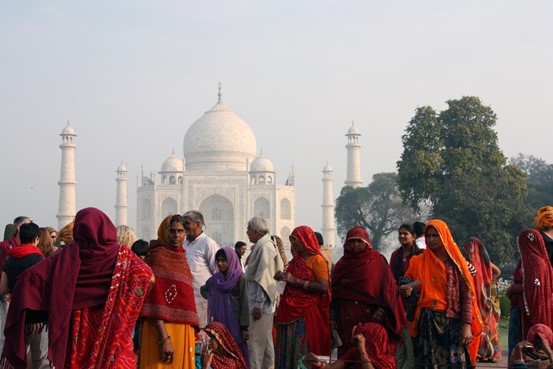
Mahatma Gandhi quotes
- You may never know what results come of your actions, but if you do nothing, there will be no results
- My mission is to teach by example. My humble interest is to show people how to solve their own difficulties
- Force is the weapon of the weak; nonviolence is the weapon of the strong
- An eye for an eye only ends up making the whole world blind
- The path of peace is the path of truth. A truthful man cannot be violent
- You must not lose faith in humanity. Humanity is like an ocean; if a few drops of the ocean are dirty, the ocean does not become dirty
- True democracy cannot be created by twenty people at the center. It should be created by the people in every village
- Literacy and learning do not make a person, but education for actual life
- A woman is a man’s companion, endowed with equal mental abilities
- A man is but the product of his thoughts what he thinks, he becomes
- My life is my message. My religion has no geographical limits. If I have a living faith in it, it will transcend my love for India herself








 2018
2018